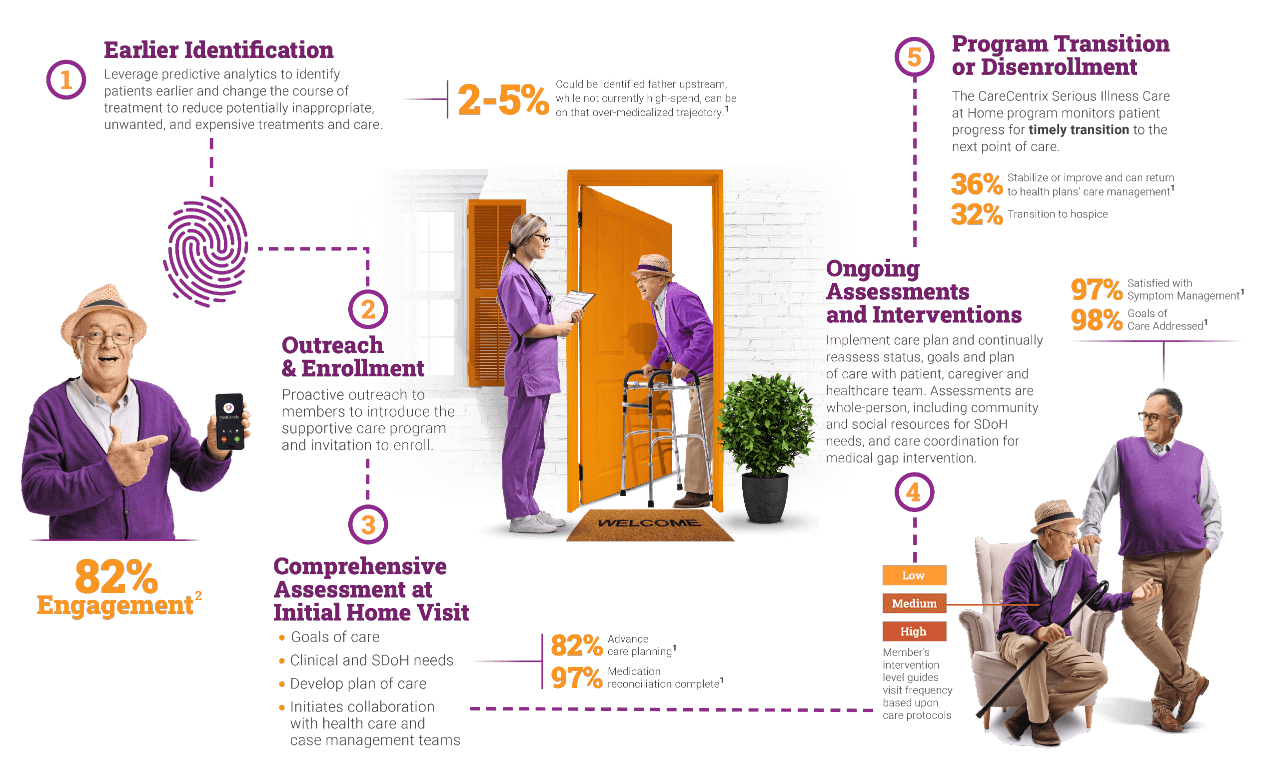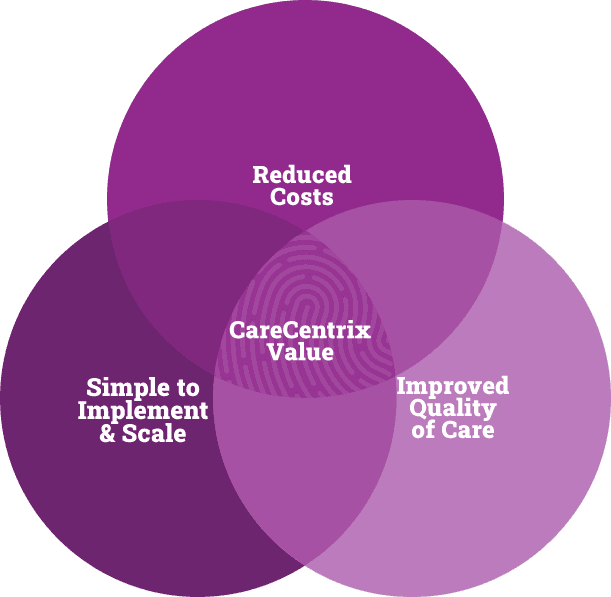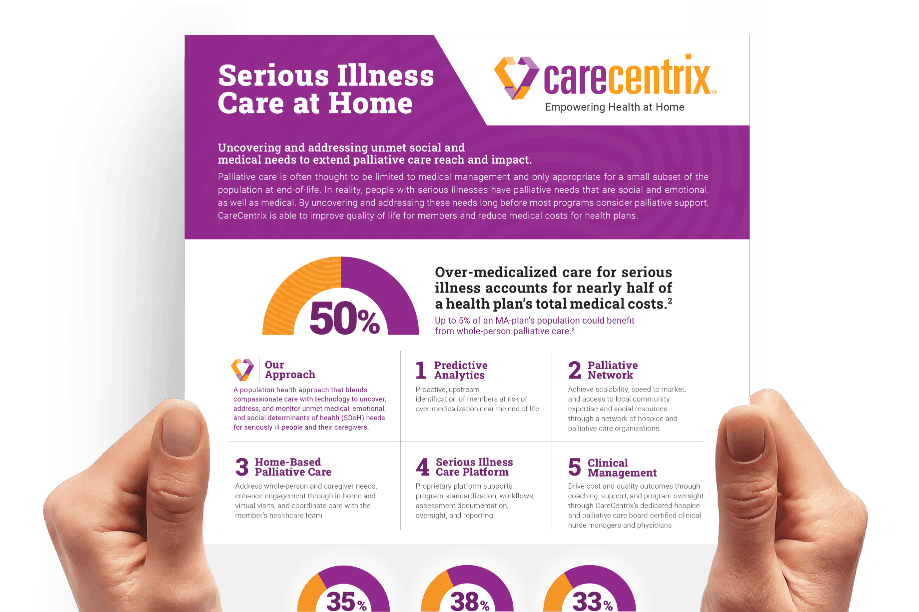Palliative care is often thought to be limited to medical management and only appropriate for a small subset of the population at end-of-life. In reality, people with serious illnesses have palliative needs that are social and emotional, as well as medical. By uncovering and addressing these needs long before most programs consider palliative support, CareCentrix is able to improve quality of life for members and reduce medical costs for health plans.
A population health approach that blends compassionate care with technology to uncover, address, and monitor unmet medical, emotional, and social determinants of health (SDoH) needs for seriously ill people and their caregivers.
Our results, published in the Journal of Palliative Medicine, demonstrate that uncovering and addressing social and medical care gaps pre-decline results in more compassionate, affordable, sustainable, and high-quality care.
Our upstream, social-first, clinical-second approach supports and coordinates with existing care delivery models, rather than replacing or competing. Through the CareCentrix approach, we expand your reach to close care gaps that, when unmet, exacerbate serious illness. The result is higher quality care, improved member satisfaction, and significantly reduced costs.
When partnering with CareCentrix, the key to success is identifying and engaging the highest-risk members pre-decline, when there is still time to uncover and close social and medical care gaps. This not only drives improved quality and satisfaction but also creates up to 35% total cost of care savings.


Our Serious Illness Care at Home solution is designed to easily implement, scale, and integrate into existing care delivery systems. We proactively identify, engage, and support members and caregivers to remain independent in their homes and make health care decisions aligned with their goals and values.
Our capabilities support quality metrics tied to CMS Star ratings including quality of care, member, and caregiver satisfaction, post-hospital medication reconciliation, and utilization.
1. CareCentrix Data, 2022
2. “Effects of a population health community-based palliative care program on cost and utilization.” Journal of Palliative Medicine, 2019
3. “Managing the Most Expensive Patients”, Harvard Business Review, Jan-Feb 2020. https://hbr.org/2020/01/managing-the-most-expensive-patients [hbr.org]
